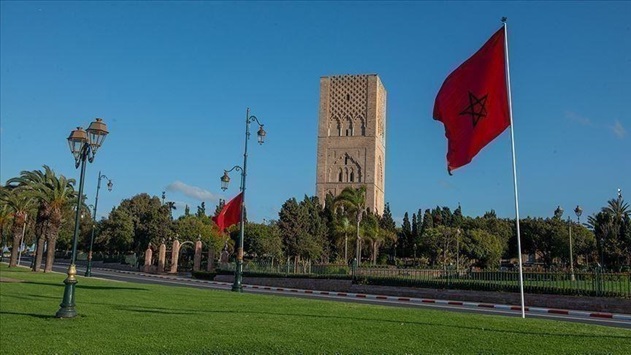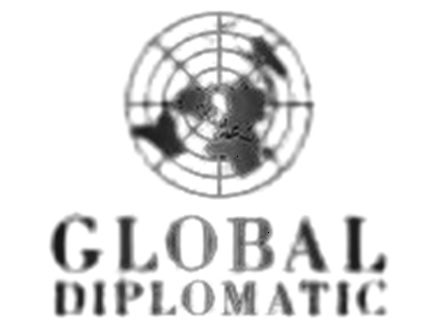
The fight against irregular immigration today constitutes a major challenge both for countries of final destination and for countries of transit, such as Morocco which, with this double dimension, has become, over the last ten years, one of the preferred trajectories for sub-Saharan migrants heading to Europe.
Morocco was very aware of this change in its status (from a country of transit to a country of long-term residence), as early as 2013, when King Mohammed VI gave his high directives to the government for the overhaul of the legislation on immigration and asylum, following a new humanist approach, respecting the rights of immigrants. An approach that the Kingdom intended to share with all its African and European, and even international, partners, which aims to integrate migrants in its global dimension, granting them the right to work, medical and social protection, housing, the reintegration of their children as well as women into educational and cultural structures and professional training. The second dimension of this new approach, which draws its foundations from the strong historical and centuries-old links of hospitality and welcome of the Kingdom with its African partners, devotes humanist and dignified treatment to migrants who land on Moroccan territory.
The Kingdom's new strategy is now based on coupling the security of national, land, and maritime borders, with the humanitarian and dignified treatment of migrants, considering their fragility and difficulties.
The Moroccan Monarch made the cause of migrants his fundamental plea before his African peers, at the summit of the African Union, in 2017 in Addis Ababa, during the reintegration of the organization. From then on, Morocco implemented this new migrant management strategy, by regularizing 50,000 sub-Saharan Africans, in two large waves (in 2014 and 2017), to the satisfaction of both African countries and the African Union, international humanitarian and human rights organizations.
Morocco will thus have been a pioneer in this continental and international dimension strategy. Today, the temptation of some sub-Saharans is not to go back to the north of Morocco, but to try their adventures towards the Canary Islands, from the southern Moroccan provinces. Thousands of them were intercepted at sea, on the Moroccan coast, by the Royal Moroccan Navy, which provided rescue and assistance to no less than 16,000 sub-Saharan migrants in distress (2022 figures), while their boats, often rickety boats, were on the verge of sinking. They are taken to Moroccan hospitals to receive the necessary care and are taken care of by the social services of the Royal Armed Forces (FAR). At the same time, Moroccan security services, all sectors combined, have thwarted 75,000 illegal migratory attempts in 2023.
This shows the worrying scale of a phenomenon that is increasing, unlike Moroccan candidates for immigration to Europe whose curve is decreasing.
Other sub-Saharan migrants only choose Morocco for its proximity to Europe, and therefore wait, especially in the northern region of the country, for the moment to be able to cross the Mediterranean. Among these, there are some who – fortunately, they are in the minority – unfortunately participate in assaults (6 assaults in 2022, involving 1,400 migrants) against the metal fence of Ceuta and Melilla, putting their lives in danger.
Neither the Kingdom of Morocco, from which they launch such adventures, and which therefore assumes responsibility for preventing such attacks, nor the Kingdom of Spain, tolerate such actions, which are also detrimental to the excellent relations of cooperation between the two countries.
However, around 6,000 migrants have benefited, of their own free will, from voluntary return to their country of origin, as part of operations supervised in collaboration with the International Organization for Migration (IOM) and the diplomatic missions of their country in Morocco.
The Kingdom is waging a merciless fight against irregular immigration and trafficking networks (419 networks dismantled in 2023). Surveillance of land and maritime borders against irregular immigration is becoming one of the Kingdom’s major priorities. This involves securing borders against terrorism and subversion, but also against drug trafficking, human trafficking, and irregular immigration. There is reason to particularly salute the Moroccan army which, alongside the other security forces, remains, alongside its conventional tasks, also strongly present in the social and humanitarian field, inside Morocco and abroad.
If the Moroccan destination becomes, compared to other countries in the south of the Mediterranean, the most coveted now, it is undoubtedly because of the empathy shown by the Moroccan authorities and people towards the migrants who arrive in the territory.
In this, Morocco demonstrates, once again, its commitment to respect human dignity, considering the endurance of illegal immigrants, who travel thousands of kilometers, sometimes on foot, to reach this Kingdom, in the hope of being able to access, locally or in the European El Dorado, for a better way of life.
The Kingdom thus becomes one of the rare countries on the southern shore of the Mediterranean to regularize the situation of several thousand migrants, mostly sub-Saharan. This treatment is not strange in Morocco, which has its roots in Africa, a continent with which the Moroccan collective development and emancipation are now linked.
The irregular migratory flow towards Europe, which has increased in recent years due to armed conflicts, drought, and the extreme fragility of populations, is also a source of major concern for the countries on the northern shore of the Mediterranean. The fight against irregular immigration is now a central theme of the Euro-Mediterranean partnership, whose success remains conditional on mastering the management of the irregular migratory flow. Europe is today aware, like Morocco, that a real fight against this phenomenon requires implementing vast development programs in the countries of origin, combined with good governance of public affairs.
For its part, Morocco has been part of this vast project since the start of the reign of King Mohammed VI, by developing multiple partnerships with African countries, within the framework of south-south cooperation, tending to value of African, economic, social, commercial and human potential.
Video:
